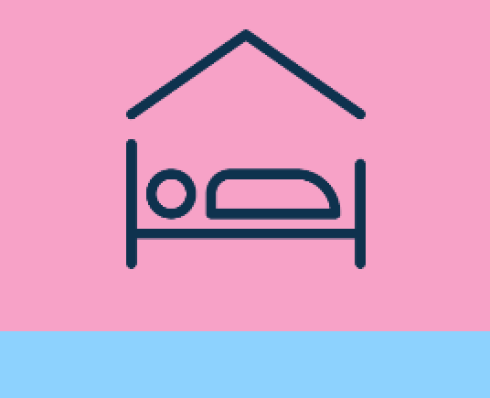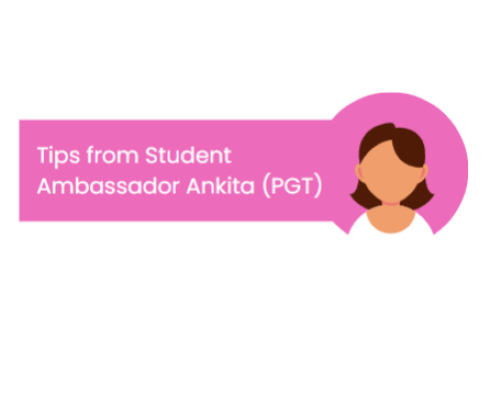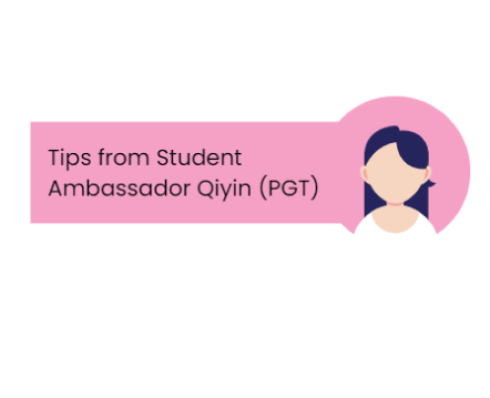

International Students
Welcome to your new adventure in Dublin! As an international student, you are about to embark on a journey filled with exciting opportunities, personal growth, and lifelong memories. Our vibrant and diverse university community is here to support you every step of the way as you adjust to living and studying in Ireland and make the most of your academic and social experiences. Whether you are navigating the new culture, exploring the city, or diving into your studies, we are here to ensure you feel at home and empowered to thrive in your new environment.
Below you'll find information broken into stages:
>> Before you Arrive >> After you Arrive >> Tips from our Ambassadors
Before you arrive

International Orientation
Orientation for Semester 2 (January 2025) is now over.
Don't forget to go through the International Student Handbook, and, once you have access, through the 'International' course on Discover DCU on Loop.
See the DCU Academic Calendar for important dates.
If you have any questions, please let us know at student.support@dcu.ie

Accommodation in Dublin is always a challenge, and it's best to start your search early. Make sure you organise accommodation before the start of term. Please note, on-campus housing is unfortunately heavily oversubscribed. As there are typically several applicants for every room, it is important to plan for an unsuccessful lottery outcome. Make sure you explore off-campus accommodation options, and if you are offered a room off-campus, you are strongly advised to accept it.
Because of the high demand for housing, rental scams are on the rise! Before paying for a room, check Threshold's advice on how to spot a scam.
Off-Campus Accommodation
-
Resources in DCU: StudentPad, the official DCUSU off-campus accommodation listings. DCUSU provides this platform to help Dublin City University students find suitable accommodation.
-
Neighbourhoods and areas near to DCU: It is useful to familiarise yourself with DCU's location before starting your search. When searching for a room, filters that identify areas close to the University include: Dublin 5 (Artane, Killester, Raheny, Donnycarney), Dublin 7 (Phibsboro), Dublin 9 (Beaumont, Santry, Drumcondra), Dublin 11 (Glasnevin, Finglas)
-
Student residences close to DCU: Gateway Student Village, Shanowen Square, Shanowen Hall, Schoolhouse Court, Aspen, Hazelwood (Please note that these residences are not affiliated with DCU.)
-
General housing listings in Dublin and elsewhere: Daft.ie, MyHome, Property.ie, Let.ie, Homestay.com, Rent.ie, SpotaHome, Facebook (check groups where other students are looking for house/flatmates)
❗Know your rights and beware of scams 🚨
On-Campus Accommodation
DCU Rooms manage on-campus accommodation. On-campus housing is unfortunately heavily oversubscribed. It is important to plan for an unsuccessful lottery outcome and secure a room as soon as possible. Applications for international students closes on June 12th. A lottery is held in mid-June and students are notified of their status shortly after by email only.
Semester 2 Information
If you are an undergraduate student looking for on-campus accommodation in Semester 2, please note that Semester 2 rooms are extremely limited and it is essential that you look at off-campus options as soon as possible.
If you are a postgraduate student looking for on-campus accommodation in Semester 2, please note that as postgraduate rooms in campus residences are available on a 50 week basis only from September, Semester 2-only rooms are not available.
After you arrive

Everyone at DCU wants to make sure you have a safe, rewarding and fun experience while you are studying here. Find out who to ask for help when you have a question, need some advice or would just like a chat!
-
A comprehensive overview of essential information, organised by theme. It covers topics from academic policies and support services to information about campus and student life.
-
Academic and module questions
Contact the relevant lecturer or your Programme Chair.
Exchange or Erasmus students: incoming.exchange@dcu.ie
Study Abroad students: study.abroad@dcu.ie
Questions about registration, admissions, deferrals, transfers: registry@dcu.ie
Questions about exams, results, appeals: examinations@dcu.ie
-
Practical advice
If you need practical advice, please email student.support@dcu.ie or contact the dedicated International Student Support Officer. You can also book an appointment with them.
If you need a letter confirming your status in DCU, please contact Registry.
Questions about fees: fees@dcu.ie
-
Careers advice
Through learning and development initiatives, they empower students to shape their futures to become successful in their chosen career paths; provide opportunities to connect students with the agile nature of the world of work; and be a leading player in the talent development and employer engagement for our local, national and global communities.
-
Wellbeing and Mental Health
Professional, confidential, and free - that is our Counselling and Personal Development Service.
At DCU, we care very much about the wellbeing of our students, teachers, and staff members. In fact, it is so important to us that we have established Care & Connect, a whole-of-university approach for academic, personal, and financial wellbeing. The aim is to develop a campus environment where students are treated with dignity and respect, watch out for each other, and develop meaningful relationships.
This means you can attend events organised by out Student Wellness Ambassadors and our colleagues in Student Support & Development, and you can find lots of Care and Connect spaces around the DCU campuses (such as Quiet Zones, spaces to study or connect with others, spaces to relax between classes, etc.).
We would definitely recommend you also take a look at the DEVELOP courses (such as Community, Healthy Choices, Mental Health, Life Skills, or Spirituality).
DCU also has a tool for anonymously reporting incidents of harassment, bullying, discrimination, and sexual misconduct - Speak Out.
-
Disability and Learning Support
The aim of the Disability & Learning Support Service is to provide a student-centred multi-disciplinary service that empowers and enables students to reach their full potential in an inclusive learning environment.
-
Learning Skills & Writing Centre
The Learning Skills team provides expert advice and support to help you develop your study skills and grow your learning confidence. The Writing Centre offers guidance with academic writing to all undergraduate and postgraduate students through individual appointments, workshops and online resources.
-
Chaplaincy and Interfaith Centre
DCU Chaplaincy is a place of care and sanctuary for everyone on campus and for the wider community - regardless of religious or spiritual beliefs.

Global Connect Café and Events
If you wish to meet other international (and domestic) students, you are more than welcome to join us at one of the new series of events in Semester 1 - from coffee/tea gatherings, breakfasts, board game sessions, to quizzes and film screening! Make sure to check My Events Hub regularly for updates on upcoming GCC events!
Get involved and make friends
DCU Students’ Union (DCUSU) represents our students and advocates for them, and it can help you access counselling and other supports. You can find DCUSU offices in The U, DCU’s state-of-the-art student centre on the DCU Glasnevin campus.
There are more than 140 clubs and societies you can join, including several for our international students, including the Erasmus Student Network (ESN), the Chinese Society, the Indian Society and the Intercultural Society.
Find your way
Explore our campuses and find places to study or to socialise with the new interactive virtual model, DCU Campus Explorer, that brings the vibrancy of our inclusive community to life in a new and exciting way.

Scholarships for International Students at DCU
Student Union's The Pantry
The Pantry is designed for all students struggling with the cost of living crisis. Students can avail of this service once a week to get some basic non-perishable food items to cook with, free of charge.
The Office of Student Life also provides free breakfast every day, as well as free hot water. Microwaves are also available in the 'U' Building.
What's more, thanks to The Pantry, you can get free period products and free contraception!
Financial Survival at University
Help with budgeting - MABS
Click below to reveal tips from our Student Ambassadors ↓

- Taking care of yourself is not selfish; it is essential for your well-being and ability to thrive in college and beyond. Prioritise self-care by getting enough sleep, eating well, and staying active.
- Join clubs, societies, and social activities to build a support network and connect with the college community.
- Familiarise yourself with campus healthcare and counselling services. Don't hesitate to reach out if you need assistance with any physical or mental health concerns.
- Whether grabbing a meal together or attending a campus event, reaching out to classmates or hallmates helped me build meaningful relationships.
- Attending campus events became one of my favourite ways to socialise. Cheering on our sports teams, dancing at parties, or exploring cultural festivals were all opportunities for me to meet new people and make lasting memories.
- I wish I had more information about Irish cultural festivals, like Pancake Tuesday or Lent. Make Irish friends, follow social media that inform students about events around Dublin.
- I discovered that studying in social spaces could actually be quite beneficial. Instead of isolating myself, I chose to study in places where I was more likely to interact with others. It led to some interesting conversations and even some new friendships.
- Saying yes to invitations was a game-changer for me.
- Embracing diversity and staying true to myself fostered genuine friendships, shaping my journey of self-discovery and growth.
- Tips for trips: the majestic Cliffs of Moher, the serene Japanese Gardens of County Kildare, the breathtaking Dingle Peninsula, the enigmatic Murder Hole Beach in County Donegal, the mystical ruins of Glendalough, Blarney Castle, Leap Castle, Trim Castle, Malahide Castle, Powerscourt Estate.

- Familiarise yourself with local customs, culture, and any specific regulations or etiquette. Plan out a rough itinerary of places you'd like to visit and activities you'd like to do during your stay.
- Sample traditional Irish dishes! Check out local events, festivals, and markets happening in your area to experience Irish hospitality and live music sessions.
- Learn some Irish phrases.
- Strike up conversations with locals and fellow expats. Smile, make eye contact, and be open to initiating conversations.
- Keep an open mind, stay flexible, and be prepared to adapt. Be patient and persistent.
- Engage actively in class discussions, group projects, and study groups. Take advantage of study sessions, workshops, and academic support programs offered by the university.
- It is normal to feel bad at first after receiving some critical feedback, but at some point, when you look at the situation again and grow, you may turn out grateful. In the course of all that, be kind to yourself, but be willing to improve based on the feedback.
- Join university-related social media groups, forums, and online communities.
- Volunteer to help organise or participate in campus events, such as orientation programs, charity drives, or community outreach initiatives.
- Care and Connect is a highly important service students should engage with considering how well they care about the general, although mostly psychological, wellness of students.
- Talking about one's feelings in a supportive environment like a wellness centre, can be incredibly therapeutic.
- Being an Ambassador - helping others - really helped me and was part of my self-care.

- I would always recommend wearing suitable rainproof clothing. Keep warm, especially in the winter months.
- Try to maintain a balanced diet with plenty of fresh fruits and vegetables and a moderate intake of protein and whole grains.
- Prepare a list of emergency contacts, including contact information for your embassy or consulate in Ireland.
- If you plan to drive, check to see if your driver's licence is valid in Ireland or if you need an international driver's licence.
- Joining clubs and societies, attending events, and volunteering helped me create a sense of community and build lasting friendships.
- When you're feeling lonely, regular phone calls or video chats with loved ones can provide emotional support and keep in touch with people you know well. All the emotions you are feeling are valid and normal.
- Going abroad to study is not easy. A lot of us are, for the first time in our lives, managing our time and finances away from home and family. We all feel both excited and anxious. There may be some discomfort (cultural differences, language barriers, different teaching styles), and that is okay. It is all part of the experience.
- Utilise university resources, like the library and writing centre. There is a lot of support offered. If you need to deal with an issue, do it immediately, don’t postpone - you might miss important deadlines.
- Tips for trips: Trim Castle, Malahide Castle, National Botanic Gardens, Hill of Tara, Howth.

